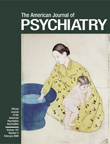Risk of Recurrence of Bipolar Disorder in Pregnant and Nonpregnant Women After Discontinuing Lithium Maintenance
Abstract
OBJECTIVE: Pregnancy poses major challenges for the treatment of bipolar disorder, and information to guide clinical care remains very sparse. The authors sought to determine the illness recurrence risk for women with bipolar disorder who discontinue lithium maintenance during pregnancy. METHOD: The authors retrospectively compared recurrence rates and survival functions for 101 women with DSM-IV bipolar disorder (68 type I, 33 type II) during pregnancy and postpartum (N=42) or during equivalent periods (weeks 1–40 and 41–64) for age-matched nonpregnant subjects (N=59) after either rapid (1–14 days) or gradual (15–30 days) discontinuation of lithium. Recurrence rates also were obtained for the year before discontinuing lithium. RESULTS: Rates of recurrence during the first 40 weeks after lithium discontinuation were similar for pregnant (52%) and nonpregnant women (58%) but had been much lower for both in the year before treatment was discontinued (21%). Among subjects who remained stable over the first 40 weeks after lithium discontinuation, postpartum recurrences were 2.9 times more frequent than recurrences in nonpregnant women during weeks 41–64 (70% versus 24%). Depressive or dysphoric-mixed episodes were more prevalent in pregnant than nonpregnant women (63% versus 38% of recurrences). Recurrence risk was greater after rapid than after gradual discontinuation, and for patients with more prior affective episodes, but was similar for diagnostic types I and II. CONCLUSIONS: Rates of recurrence during the first 40 weeks after lithium discontinuation were similar for pregnant and nonpregnant women but then sharply increased postpartum. Risk was much lower during preceding treatment and less with gradual discontinuation. Treatment planning for potentially pregnant women with bipolar disorder should consider the relative risks of fetal exposure to mood stabilizers versus the high recurrence risks after discontinuing lithium.



